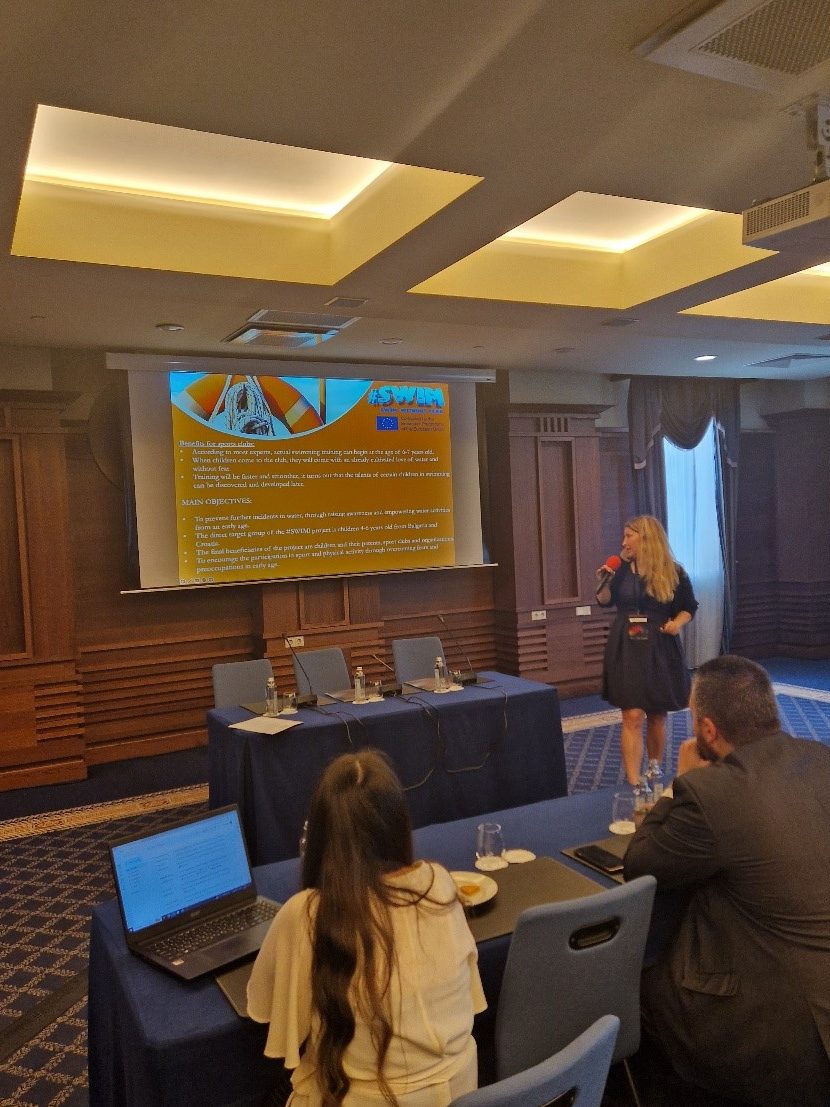International Sports Conference Highlights Innovations and Good European Practices
The International Conference on “Sports Innovations and Good European Practices” which took place on 16th of June in Sofia, Bulgaria, showed groundbreaking projects and discussed opportunities for their implementation throughout the European Union. The event was organized by the Association Sport Club “Comac Sport,” within the project “Come & Play 4.0” (EAC-2020-0745), co-funded by EAC/S09/2020 – Grassroots sport programmes and infrastructure innovation of the European Union. The event attracted 100 participants from various stakeholder groups, including renowned speakers from European Institutions.
The conference, held at the prestigious Grand Hotel Sofia, commenced at 10:00 am with the registration of enthusiastic attendees eager to explore the latest advancements in sports practices. Dr. Mladen Lambeff, representing Sport Club “Comac Sport,” delivered the opening remarks and extended a warm welcome to all participants, setting an inspiring tone for the day’s proceedings.

The keynote speaker session featured Rodrigo Dudas, the Sport Coordinator of the Budapest Association for International Sports in Hungary. Dudas captivated the audience with his personal journey from Brazil to Budapest, highlighting Hungary’s exemplary sports practices and providing valuable insights into fostering international collaborations.
 One of the interactive presentations titled “Come and Play 4.0” captured the attention of attendees. Presented by Yanitsa Boycheva and Dr. Mladen Lambeff, this session showcased a digital toolkit and 3D hologram images. The project aims to leverage Industry 4.0 technologies to make sports more popular among young people while also demonstrating the benefits of digitalization for adults. The holographic 3D images presented step-by-step exercises tailored to three target groups, providing visually engaging and easily understandable instructions.
One of the interactive presentations titled “Come and Play 4.0” captured the attention of attendees. Presented by Yanitsa Boycheva and Dr. Mladen Lambeff, this session showcased a digital toolkit and 3D hologram images. The project aims to leverage Industry 4.0 technologies to make sports more popular among young people while also demonstrating the benefits of digitalization for adults. The holographic 3D images presented step-by-step exercises tailored to three target groups, providing visually engaging and easily understandable instructions.

The conference also delved into sustainable sport practices in the EU. Elif Kayhan from Turkey presented the “Carbon Neutral Sports Club Network – C ZERO SPORTS CLUB.” This initiative aims to motivate sports organizations to reduce their carbon footprints, recognizing the crucial role the sports industry plays in addressing environmental concerns.

Innovative training methods and techniques were explored in the session titled “#SWIM – Swim Without Fear” by Joanna Dochevska, representing the Bulgarian Sports Development Association. This groundbreaking approach addresses hydrophobia by developing a comprehensive guide useful for parents and swimming organizations, fostering a safe and enjoyable swimming experience for all. She also discussed the “#SMILE – Sport, Motivation, Inclusion, Leadership, Engagement” initiative, which focuses on the sustainable inclusion of individuals with intellectual disabilities in sporting activities at local, national, and international levels.

Promoting equality and inclusion in European sports was a crucial aspect of the conference. Dr. Roberto Volpe, representing the National Research Council of Italy, shed light on the “Women’s Hurdles” project, which seeks to increase women’s physical activity and overcome barriers to their participation in sports.

The conference concluded with Yanitsa Boycheva delivering closing remarks and summarizing the key takeaways from the day’s sessions. Participants left the event inspired by the shared knowledge, innovative ideas, and opportunities for collaboration that emerged throughout the conference.

The International Conference on “Sports Innovations and Good European Practices” proved to be an exceptional platform for the exchange of ideas, fostering new partnerships, and promoting the advancement of sports practices across Europe. As the sports industry continues to evolve, this event has set the stage for future developments that will positively impact sports enthusiasts and athletes alike.
*The information and views set out in this publication are those of the authors and do not necessarily reflect the official opinion of the European Union. Neither the European Union institutions and bodies nor any person acting on their behalf may be held responsible for the use which may be made of the information contained therein.


